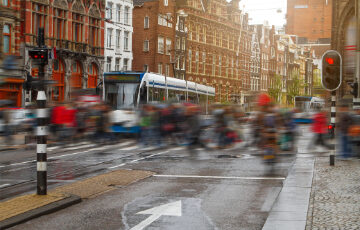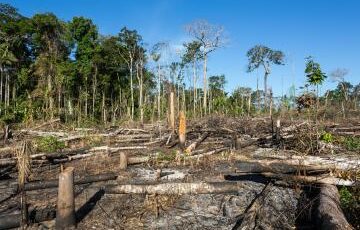
The European Union Deforestation-Free Regulation (EUDR) is a significant legislative measure aimed at combating global deforestation and forest degradation. This regulation, which will come into effect on December 30, 2024, introduces stringent requirements for products entering or being exported from the EU market to ensure they are “deforestation-free” and comply with local environmental and social laws. Our Dutch law firm explains the most important aspects.
Text Regulation on Deforestation-free products
Key Aspects of the EUDR
- Scope of Products: The regulation targets seven key commodities: cocoa, coffee, soy, palm oil, wood, rubber, and cattle, along with products derived from these commodities, such as chocolate, beef, and furniture.
- Deforestation-Free Criteria: Products must be proven to be “deforestation-free,” meaning they were not produced on land that was deforested after December 31, 2020. This includes both legal and illegal deforestation.
- Due Diligence Requirements: Companies are required to conduct due diligence to ensure compliance. This involves gathering geographic information, assessing risks of non-compliance, and implementing risk mitigation strategies[2][3][4]. Due diligence statements must be submitted electronically in a deforestation registry.
- Enforcement and Compliance: National authorities in EU member states will enforce the regulation. Non-compliance can result in products being barred from the EU market. The regulation also establishes a benchmarking system to classify countries by the risk of producing non-compliant commodities.
- Implementation Timeline: The regulation will apply from December 30, 2024, for most businesses, but micro and small enterprises have until June 30, 2025, to comply.
The EUDR is part of the EU’s broader strategy to reduce its contribution to global deforestation, thereby cutting greenhouse gas emissions and preserving biodiversity. It aligns with the EU Green Deal and complements existing regulations like the EU Timber Regulation and the Forest Law Enforcement, Governance, and Trade (FLEGT) Regulation.
How will small businesses be affected by the EU Deforestation-Free Regulation?
The European Union Deforestation-Free Regulation (EUDR) will have significant implications for small businesses, particularly those involved in the import and export of commodities linked to deforestation. Here are the key ways in which small businesses will be affected:
Delayed Implementation for Small Businesses
- Small businesses and sole proprietorships will have a slightly extended timeline to comply with the EUDR. While the regulation will take effect for most businesses on December 30, 2024, small businesses will have until June 30, 2025, to meet the new requirements.
Compliance Requirements
- Small businesses, like larger companies, will need to ensure that their products are deforestation-free. This involves gathering detailed information about the origin of their products, including geographic data and supply chain documentation, to prove compliance with the regulation.
Challenges and Costs
- The regulation requires significant due diligence, which may be challenging for small businesses due to limited resources. They will need to invest in technologies and systems for traceability and monitoring to ensure their supply chains are free from deforestation. This could involve costs related to satellite imagery, supplier audits, and compliance documentation.
Market Access and Competition
- Compliance with the EUDR is necessary for market access in the EU. Small businesses that cannot meet the requirements risk being excluded from the EU market. Additionally, there may be increased competition for deforestation-free raw materials, which could drive up costs and create supply chain challenges.
Opportunities for Support and Collaboration
- Despite the challenges, the regulation also presents opportunities for small businesses to collaborate with larger companies, governments, and other stakeholders to improve supply chain traceability and sustainability practices. Engaging in such collaborations could help small businesses adapt to the new requirements more effectively.
Overall, while the EUDR poses challenges for small businesses, particularly in terms of compliance and costs, it also encourages the adoption of more sustainable practices and offers opportunities for collaboration to meet regulatory demands.
Dutch law firm specialized in the Regulation on Deforestation-free products
For any legal inquiries or support in the Netherlands reagrding the EUDR, please feel free to contact our adept team at MAAK Advocaten.






